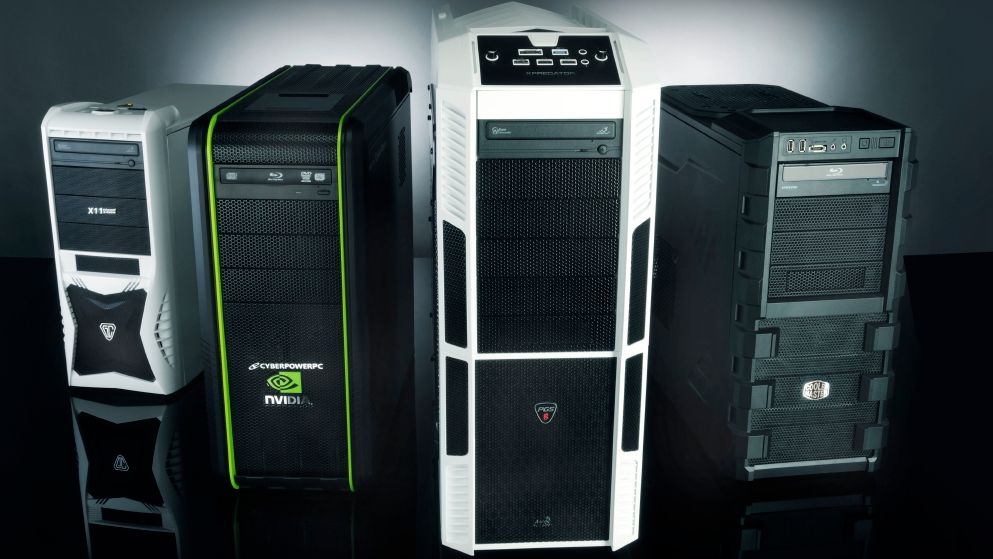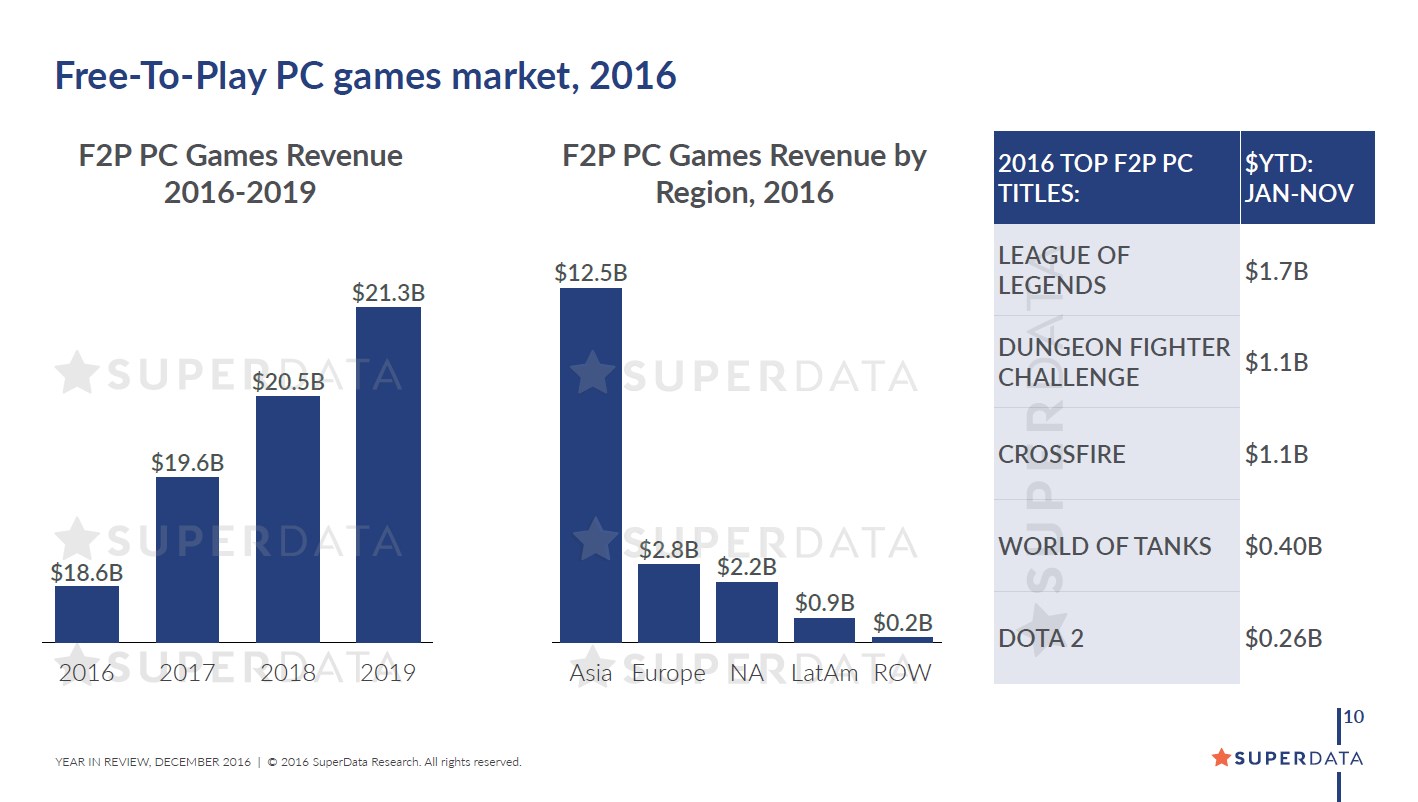PC gaming market worth $36 billion in 2016
Once again, free-to-play leads the way.

The worldwide gaming market was worth a whopping $91 billion this year, according to a new Superdata Research report. Mobile gaming, powered by huge hits like Pokemon Go and Clash Royale, led the way with a total estimated market value of $41 billion, but the PC acquitted itself very well, pulling in just shy of $36 billion over the year, "driven largely by free-to-play online titles and downloadable games."
Gaming "is growing at tremendous rates and incorporating new media and platforms, expanding its reach," the report says. "Going far beyond the traditional 'gamer' dynamic, the games and playable media audience is now one of the most valuable and engaged demographics, and brand owners are paying attention."
Premium game revenues on the PC hit $5.4 billion for the year, not too far off of the $6.6 billion earned across consoles. Overwatch led the way, earning $586 million, followed by CS:GO, Guild Wars 2, Minecraft, and Fallout 4. But the real money remains with free-to-play games: League of Legends once again tops that chart at $1.7 billion, followed by Dungeon Fighter Challenge, Crossfire, World of Tanks, and Dota 2, which brought in a relatively paltry $260 million.
"After launching more than seven years ago, League of Legends is still on the top earning Riot $150 million per month. Dota 2 comes in second at $23.4 million per month this year, show fans' hesitation to switch to another MOBA," the report says, noting how difficulty it continues to be for new MOBAs to make a meaningful impact on the genre. "The modest success of mid-tier titles like Heroes of the Storm, Smite, Heroes of Newerth, and Paragon is still dwarfed by the top two, a persistent trend over the past several years."

Interestingly, while the free-to-play and esports markets are expected to see continued healthy growth over the next three years, the "premium" PC games market is predicted to decline slightly next year, from $5.4 to $5.3 billion, before bouncing back in 2018. Reasons for the decline aren't provided, but it may be related to the note that Valve's experience with the CS:GO skin gambling controversy has led other studios to "tread with caution" regarding digital goods, something that could have a braking effect on future growth.
"Developers for Rocket League, EVE Online, and Overwatch have been careful with how they implement virtual items by either making them tradeable, or editing the terms and services to prohibit gambling of in-game currency," the report says.
Superdata says its PC valuation is based on social, free-to-play, subscription, and premium games, and obviously there's a good bit of estimating going on, as companies like Valve and Riot—two of the biggest players in this whole thing—generally don't release numbers to the public. But overall, it paints a very healthy picture of the PC gaming scene. Superdata's full year in review market brief is free from superdataresearch.com.
Keep up to date with the most important stories and the best deals, as picked by the PC Gamer team.

Andy has been gaming on PCs from the very beginning, starting as a youngster with text adventures and primitive action games on a cassette-based TRS80. From there he graduated to the glory days of Sierra Online adventures and Microprose sims, ran a local BBS, learned how to build PCs, and developed a longstanding love of RPGs, immersive sims, and shooters. He began writing videogame news in 2007 for The Escapist and somehow managed to avoid getting fired until 2014, when he joined the storied ranks of PC Gamer. He covers all aspects of the industry, from new game announcements and patch notes to legal disputes, Twitch beefs, esports, and Henry Cavill. Lots of Henry Cavill.

